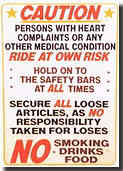Wednesday, September 22, 2004
Elmer Bernstein, 1922-2004
Elmer Bernstein died last month. Bernstein was one of the last composers from the Golden Age of movie music, the Fifties & Sixties, & one of the best (Jerry Goldsmith also died recently). Bernstein was New York born & educated. He scored some cult "B' movies early on, including Robot Monster & the noir Sudden Fear. Cecil DeMille hired him to compose some dance music for the Ten Commandments & ended up giving Bernstein the whole job. I never liked that score. But in the middle of the project, he scored The Man With the Golden Arm, for which Bernstein composed jazzy incidental music. Although He wasn't the first to do it, that score stands as the most influential of the type. He composed an even better one for The Sweet Smell of Success. Those two soundtracks plus Bernstein's To Kill A Mockingbird were great favorites of mine as a kid. I also loved his music for The World of Henry Orient, but was disappointed to learn that the wacky concerto "performed" by Peter Sellers in the movie was not composed by Bernstein. In 1959 He created some excellent jazz themes & settings for Staccato, a TV show starring John Cassavetes as a piano playing private eye (topping Peter Gunn, who merely listened to the music at "Mother's"). Bernstein also scored The Magnificent Seven, the most famous of western movie themes and a great soundtrack. In the Sixties, Bernstein succeeded Dmitri Tiomkin as the foremost composer for westerns. He scored John Wayne's final eight movies, including The Sons of Katie Elder & True Grit. With all of these classic efforts, Bernstein's only Academy Award was for Thoroughly Modern Millie. He had a lot to say regarding the state of contemporary film music & the lower status of composers in Hollywood (which they partly deserve). & Bernstein was generous & sincere in his praise of his peers, especially Bernard Herrmann, whose unused score for Hitchcock's Torn Curtain Bernstein recorded. Bernstein scored some blockbuster movies later in career, including Ghostbusters. But his best work after 1980 was on smaller films like My Left Foot & The Field, & collaborations with Scorcese. Along with all this mainstream film & TV work, Bernstein scored experimental films, documentaries, composed two Broadway plays & wrote incidental music for another (Peter Pan), recorded "pop" movie theme LPs, & created some works specially for the concert stage. He was unusual in crediting his orchestrators, Jack Shuken & Leo Hayes, on soundtrack albums. & even many of his "bad" films resulted in worthwhile scores & LPs - that's showbiz. He was a great soul & a wonderful composer. & To Kill a Mockingbird is one of those rare meetings of a really fine "message" film & an inspired, memorable score, perhaps Bernstein's personal favorite; he recorded the music three times.
"If a nation expects to be ignorant and free, in a state of civilization, it expects what never was and never will be." Thomas Jefferson














